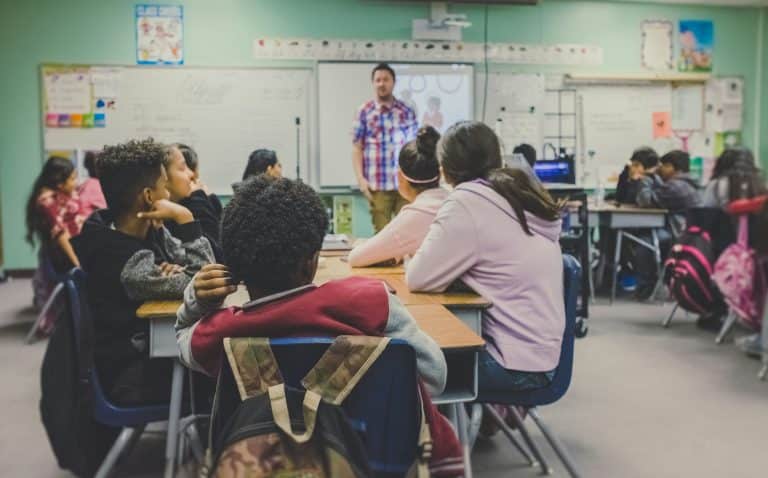
The right to education in Finland demands adaptation to new challenges, with young people increasingly grappling with loneliness, depression and anxiety in the country, according to a UN expert.
“The efficiency of Finland’s excellent education public system faces critical challenges, particularly for those living at the margins,” said Farida Shaheed, the UN Special Rapporteur on the right to education, in a statement after a 10-day official visit to the country.
The expert noted an overall decline in achievements, a worrying increase in students’ needs for support, and the shortage of qualified teachers, especially for early childhood education and care, as well as special needs.

Increase in loneliness and depression
“I am particularly concerned about the increase in loneliness, depression and anxiety in young people, and the resulting mental health issues,” Shaheed said.
“In addition, long-standing issues remain, including the lack of teachers with special competencies and appropriate education material for the Sámi, the Roma or in sign-language,” she said.
“The equality principle, which is a value at the core of the Finnish education system, is seriously challenged by issues of segregation and divisiveness in certain urban areas and between schools,” Shaheed said.
The Special Rapporteur said that a question that remains unanswered was the extent to which the education system allows for social mobility and helps to overcome existing inequalities based on socio-economic status, language, place of birth or residence, religion and disability.
“Answering that question is key to determining if an education system delivers on its promises to leave no one behind,” Shaheed said.
She recognised that the Finnish education system has relied on an extended autonomy for schools and teachers, and a high level of trust in teachers.
“However, it is crucial that these two key elements of the ‘Finnish model’ be accompanied by strong measures for in-service training of teachers to allow them to cope with new challenges and changes in legislation – and incentives to this effect are lacking,” Shaheed said.

Education sector impacted
The expert welcomed Finland’s allocation of 270 million euros more to the Ministry of Education and Culture for 2024, compared to 2023. Over the years, Finland had devoted a high level of resources to education, she said.
However, Shaheed met many people who were concerned about recently announced plans to reduce budget allocations to municipalities over the years, which would seriously impact the education sector. “
At a time when Finland faces some key challenges in education, this would be particularly regrettable,” she said.
The expert said many stakeholders believed that the ongoing digitalisation of education in Finland seemed to be driven by a desire to reduce expenses. Some students reported that they only have access to digital study materials, without enough books or paper copies for the entire classroom, and even computers in some schools.
“I am surprised that the digitalization of education does not seem to be accompanied by a discussion about its shortcomings, including health/mental health issues for children, the protection of their privacy and data online, and the risk of inadvertent privatisation that education digitalisation often entails,” the expert said, urging caution on the matter.
In Finland, Shaheed visited Helsinki, Turku and the Åland Islands.
The Special Rapporteur will submit a full report on her visit to the Human Rights Council in June 2024.
Special Rapporteur
Ms Farida Shaheed took office as Special Rapporteur on the right to education on 1 August 2022 following her appointment by the Human Rights Council. She is the Executive Director of Pakistan’s leading gender justice organization, Shirkat Gah – Women’s Resource Centre. She is also an independent expert/consultant to numerous U.N., international and bi-lateral development agencies, the government of Pakistan, as well as civil society initiatives, and serves on multiple international and national advisory committees. She served as a member of Pakistan’s National Commission on the Status of Women, and as the first Special Rapporteur in the field of cultural rights from 2009 to 2015.
The Special Rapporteurs are part of what is known as the Special Procedures of the Human Rights Council. Special Procedures, the largest body of independent experts in the UN Human Rights system, is the general name of the Council’s independent fact-finding and monitoring mechanisms that address either specific country situations or thematic issues in all parts of the world. Special Procedures experts work on a voluntary basis; they are not UN staff and do not receive a salary for their work. They are independent from any government or organisation and serve in their individual capacity.